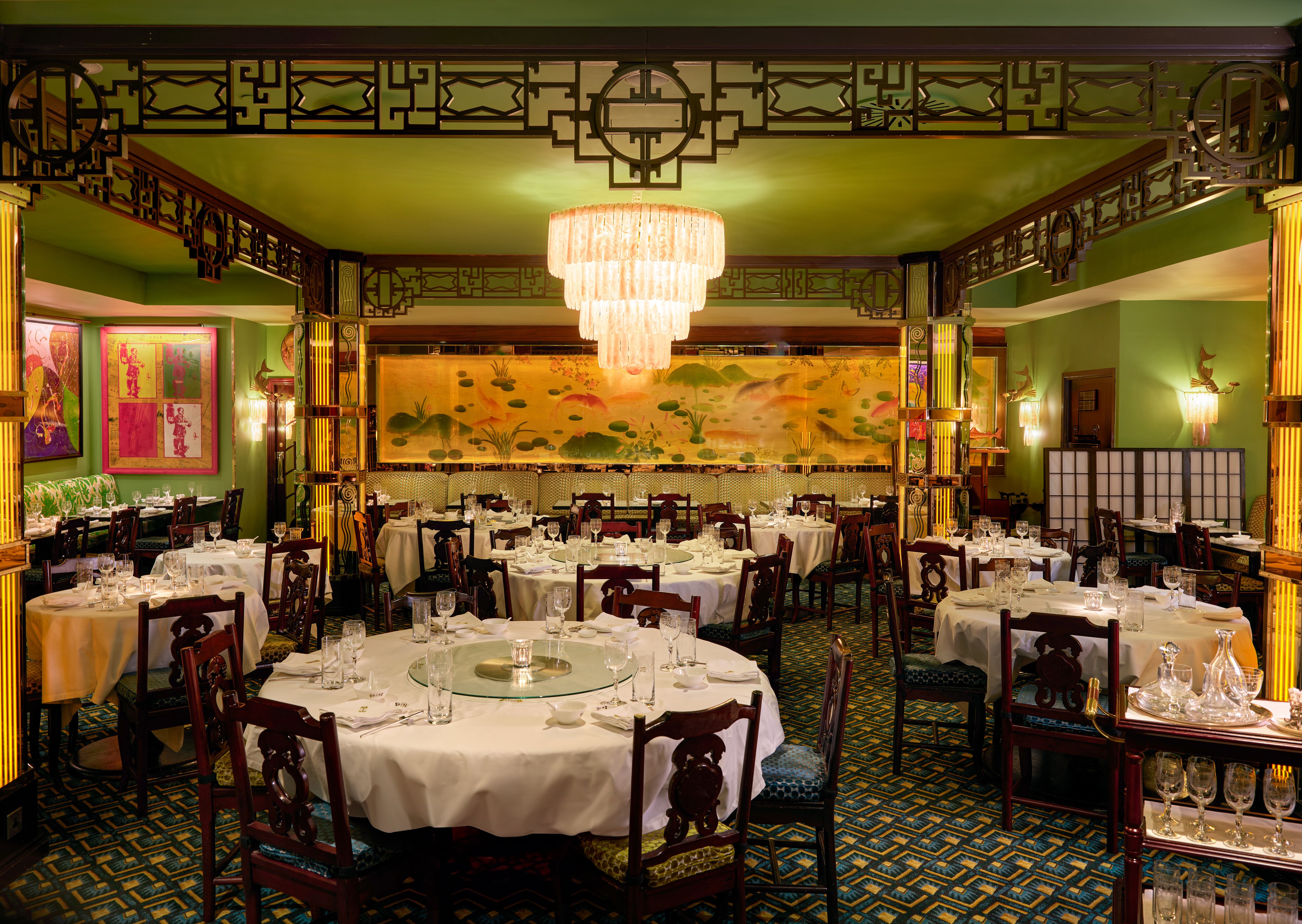Located within The Dorchester hotel, Cantonese restaurant China Tang this year celebrates its 20th birthday. Launched by the late Hong Kong businessman and philanthropist Sir David Tang, the Art Deco style restaurant has the DNA of is flamboyant creator, with its 1930s style bar a re-imagination of Tang’s living room. It underwent a refurbishment earlier this year to mark the occasion.
The restaurant is known for its classic Cantonese dishes, many of which are served family-style and prepared table side, and counts well-known people such as Kate Moss, Naomi Campbell, and Sarah Ferguson, Duchess of York, among its loyal customers.
The group has since opened locations in Hong Kong and most recently in Dubai and also last year opened Dim Sum by China Tang within Harrods’ food hall, serving its range of dim sum.
Nathalie Ford, VP Europe and Middle East at China Tang, discusses how the restaurant has stayed true to its original ethos over the past two decades but is also evolving so that it can last another two.
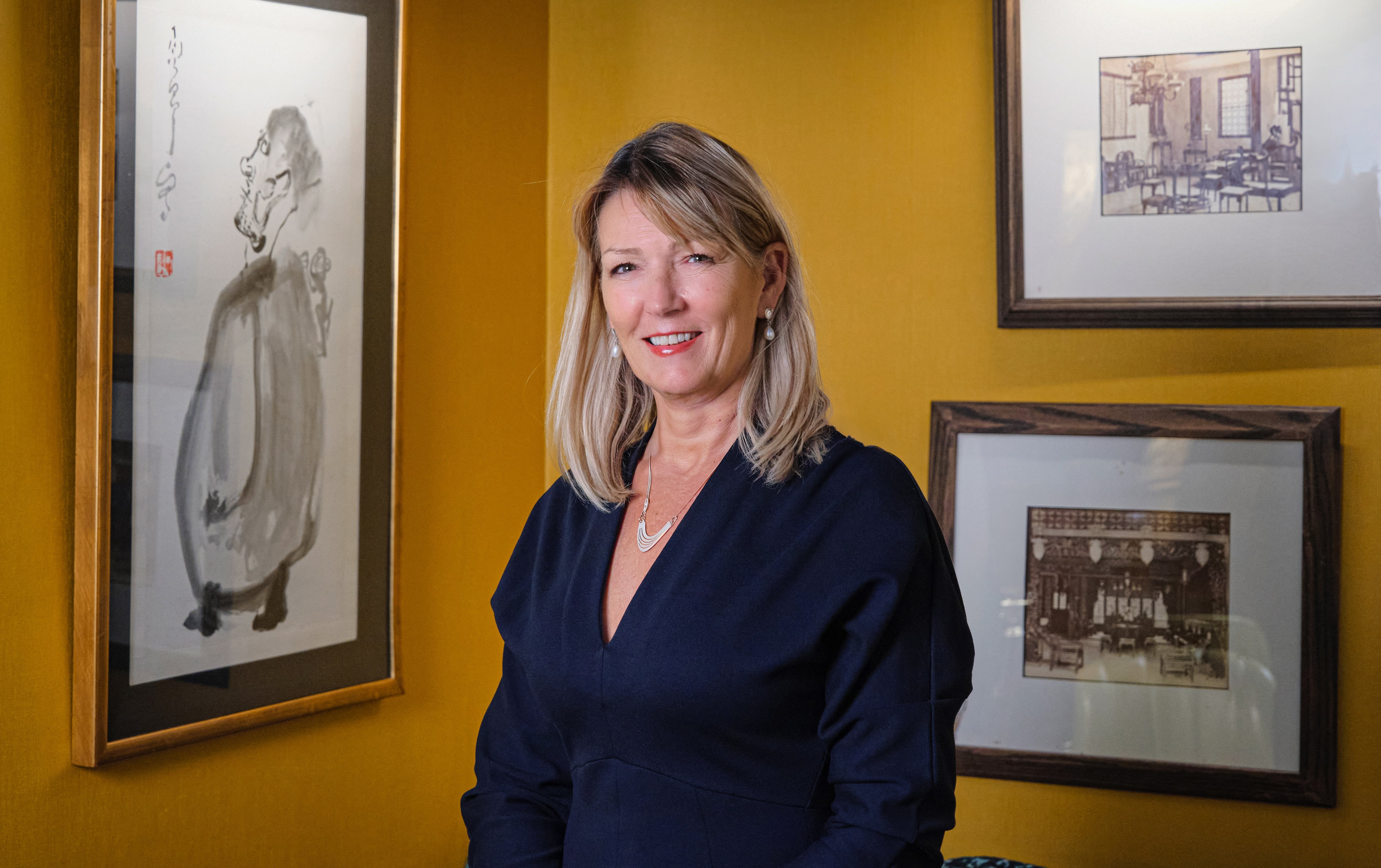
China Tang is 20 years old. How are you marking the occasion?
The first thing was to do a soft refurb. Refurbishing a restaurant of this nature where everything is bespoke means there’s an eight-to-nine-month lead time. That process started last year, and we began to see the fruits of that labour earlier this year. In April we changed the carpets and fabrics, and the entire restaurant was redecorated. We finally got rid of Sir David’s chandelier in the main dining room that apparently everybody hated and changed it to something more appropriate while keeping in the original style. China Tang is a restaurant that has the very good fortune of being frequented by repeat guests which made doing a refurb of any nature quite challenging because people treat it as their home and they don’t want you to change it. But it feels fresher. For the first time we have put a carpet down the main staircase, and people said, ‘why didn’t you do that 10 years ago?’
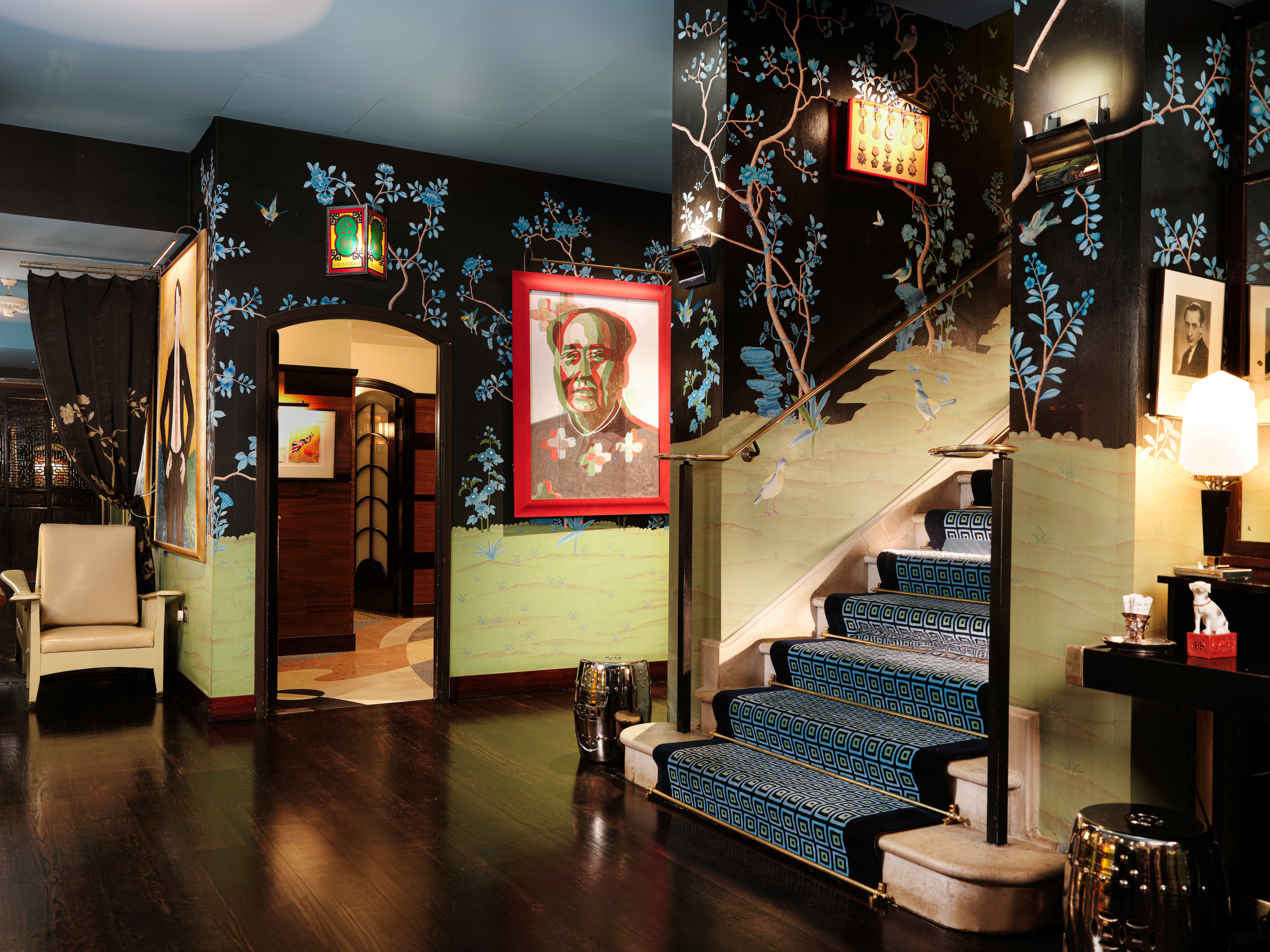
What did you do with the chandelier?
The actual structure had individual glass plates, around 160 pieces. We have a very long-serving team, around 90 staff, of which 25% have been with the company for more than 10 years. They feel very personal about China Tang, and they wanted pieces of it as souvenirs. The brass structure [of the chandelier] is in our warehouse - we don’t know what to do with it - but the glass panes went to staff members. The odd one broke during cleaning so the chandelier was incomplete to a degree which meant its retail value was next to nothing, but it meant something to the team. It’s a nice way to be able to give back.
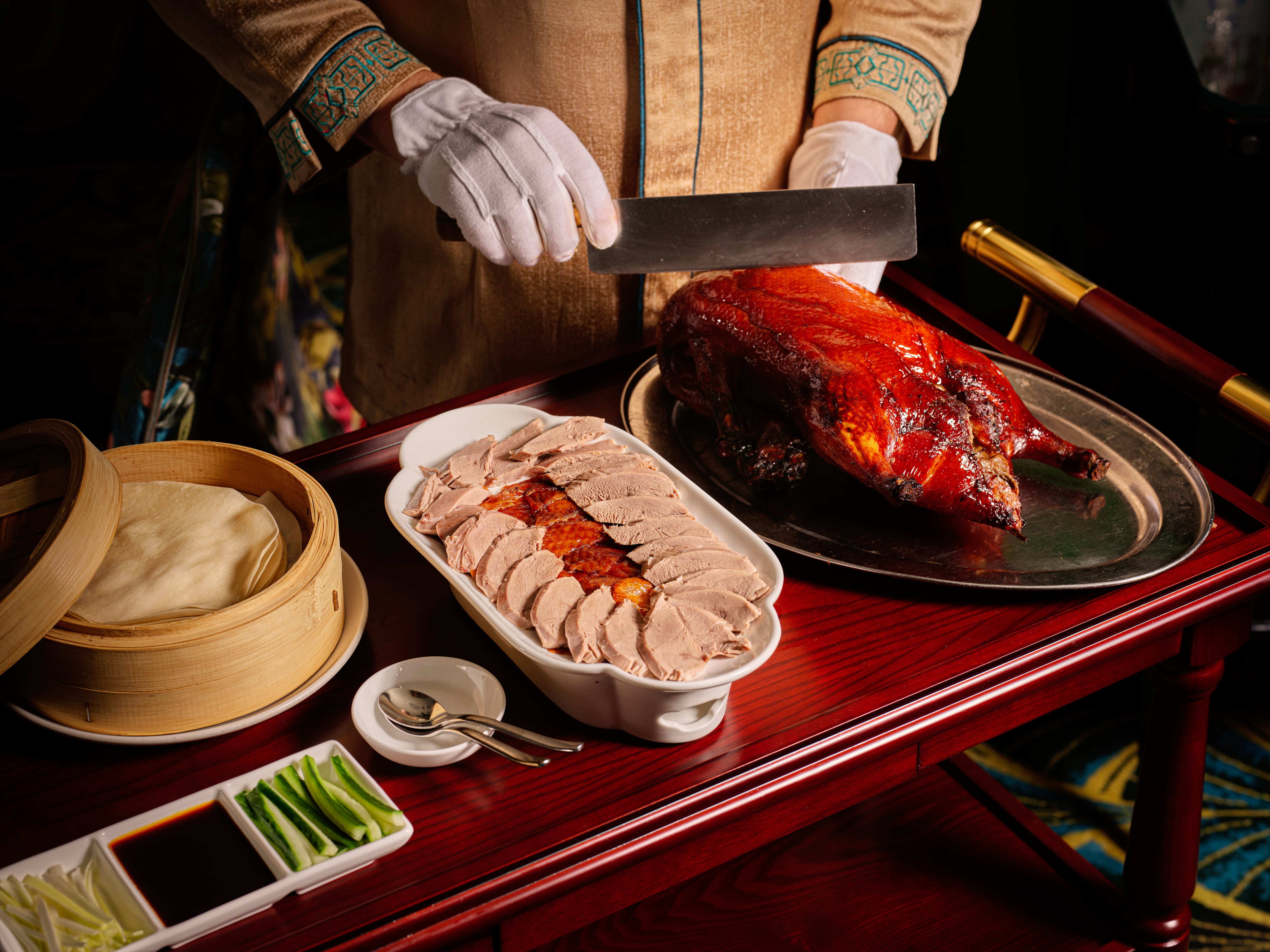
Have you changed the food offer?
We are upgrading how we present our iconic dishes. Our Peking duck is always carved table side, but we have changed how it is done. It’s been very hard to resist the temptation to follow the trend of refining the classic Cantonese dishes and to modernise to such a level that we change our style of our service. We stuck with it because it is critical to what we do. Places serving table side went out of fashion but the expectation to be entertained during dinner is very much coming back now. The Carbone founders are great supporters of China Tang when they are in town, and they’ve got that same ethos. When I went to their London opening, I felt like it was an Italian version of China Tang. People don’t want to eat at home but neither do they want to go to a Michelin-starred restaurant every evening. Here guests are guaranteed the quality they are looking for, much like at Carbone, but in a familiar welcoming way. That is the secret.
How have customers responded to the changes?
It’s had the desired impact. When I rejoined the business in February 2024, I wanted to change things up so that we were ready for the next five years while staying true to our late founder Sir David Tang and his ethos and vision and our original DNA. I’ve always been careful to not stray too far from that. The Dorchester completed its refurb at the end of 2023 and although we are two entirely separate entities and they are our landlord it’s important our guests don’t draw that distinction. They presume that because we are in The Dorchester that we are The Dorchester and expect the same standards.
You launched Dim Sum by China Tang last year in Harrods…
I like to refer to it as our little baby sister - it’s a 24-seat counter with a few tables. We maintain the standards of our product by using our operation here at the restaurant as the production kitchen. Also, Harrods had no space for us, so the solution was to add shifts at our kitchen. The dim sum is freshly made daily by hand, which means labour costs are quite high and it goes by refrigerated truck to Harrods four times a week.
What has been its impact?
Putting us in Harrods was a two-pronged approach. It was an opportunity to expand our brand. It was always our vision to grow the brand sensitively and carefully with the right partners, and Harrods is very much that. People point out that it’s only a mile down the road, but we opened a restaurant in Dubai in May this year so it all ties together very nicely. For those in the Middle Eastern market who may not come to Mayfair but are more Knightsbridge or Kensington based it has introduced us to them in a more obvious way perhaps. It has also reminded people about the restaurant at The Dorchester and has driven dining business to us. You can’t get table side carved Peking duck at Harrods, for example.
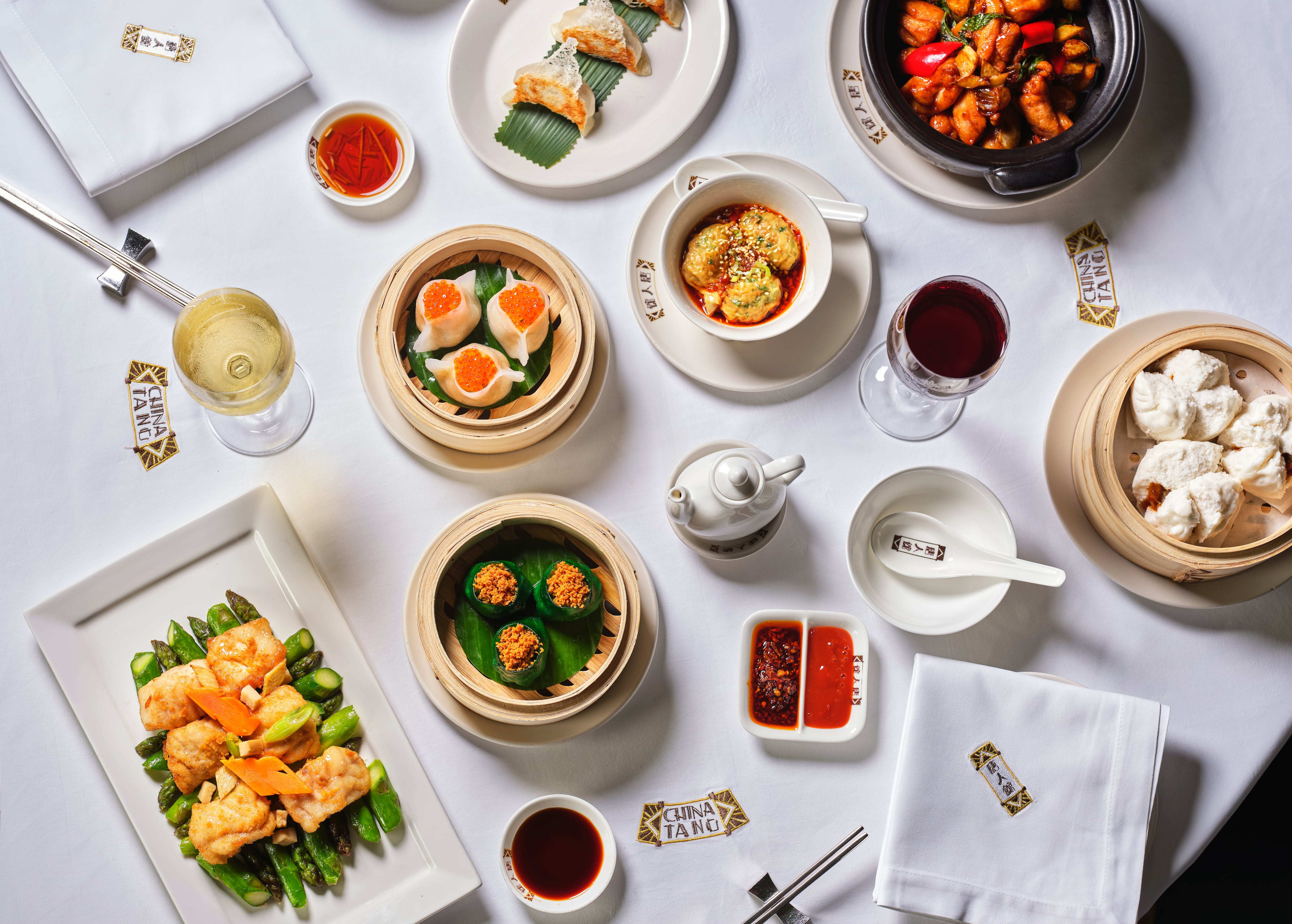
Tell us about China Tang Dubai
It was an obvious choice. The Lana Promenade, which is part of the Dorchester Collection, opened in February 2024 and is the first purpose hotel purpose built to Dorchester Collection’s specification that they manage. When we knew it was on the cards back in 2020, we raised it with The Dorchester and said they clearly needed a China Tang there. We’ve had multiple approaches to move to Dubai and not quite got there. It is located in the promenade, which is part of the hotel development but not actually within the hotel’s footprint.
How different is the Dubai restaurant to London China Tang?
China Tang is all about the sharing dishes and it is served home-style, but we have tweaked it sensitively for Dubai. The offer is more elevated, and we created bespoke crockery so that the presentation is more Instagrammable to fit the market. People in Dubai want more of that wow factor - their expectations are very different - and that’s not necessarily desired by the market here in London. Also, the Dubai restaurant is much smaller and more intimate. It has seating for 44 in the main restaurant - it does have a 65-seater terrace but with the weather in Dubai as it is it is only used for five months of the year. We flew in a team from mainland China to build a duck oven room - it’s the first one built outside of China. When you enter you can see the chefs in action and it’s producing incredible results.
Are the dishes the same?
Authenticity for us is key and we don’t steer too far away from the Cantonese element. We recruited15 chefs from China to staff the Dubai kitchen, and they lead the team. In Dubai we serve slightly reduced portions because the restaurant doesn’t lend itself to the larger tables for sharing that we have in London due to its layout. We have replicated many of the recipes so that they are exactly the same, such as the hot and sour soup, because it carries Sir David’s name, it was his recipe. We serve a full halal menu in London but there is no pork at all in our Dubai kitchen, so in order to make full use of the duck oven the BBQ section also does a wagyu beef char siu. It took a good few months with different cuts to achieve a similar effect you get with pork neck.
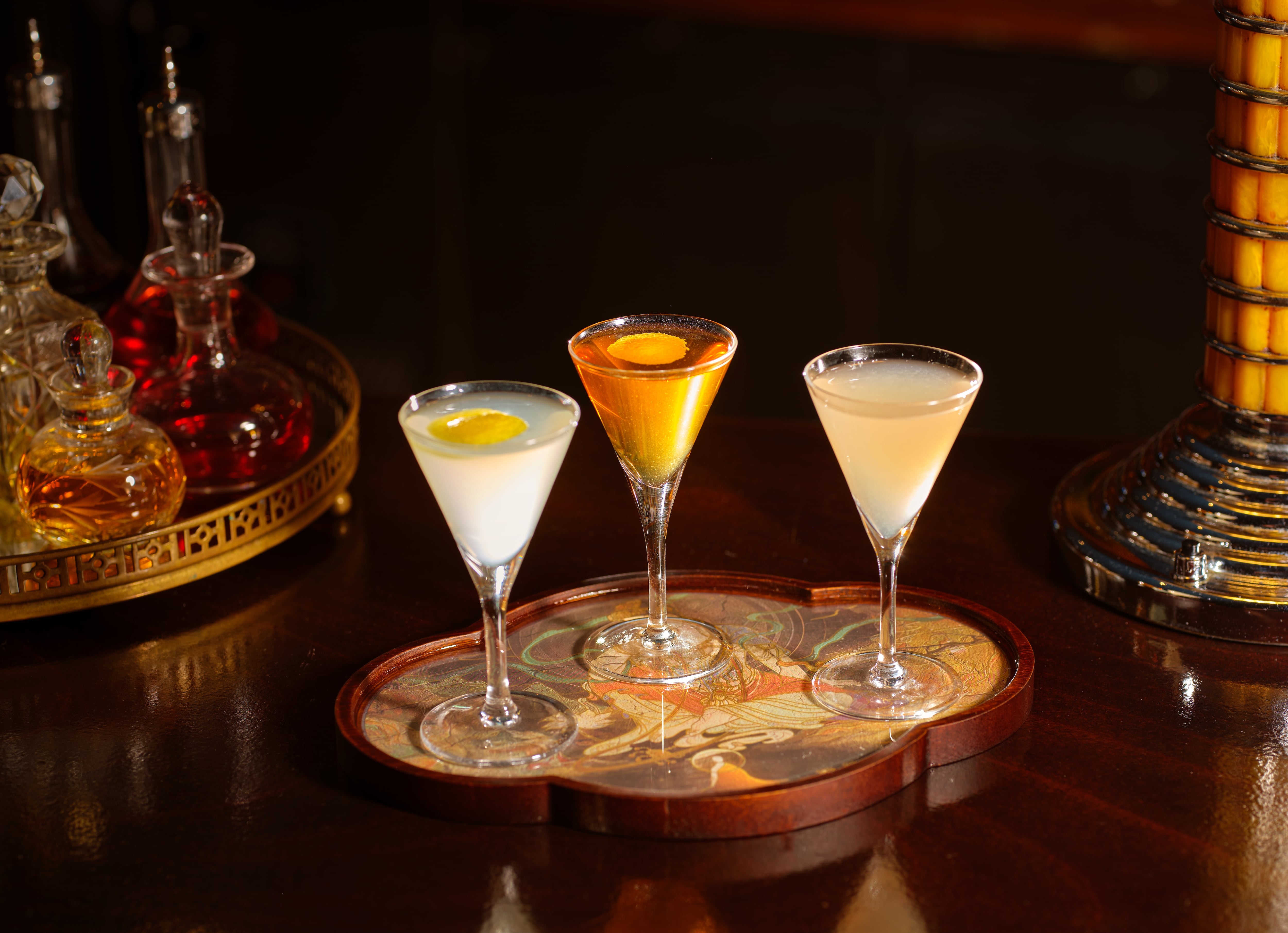
What’s next for China Tang?
There is a very clear appetite from our investors to continue to grow the brand. The obvious place would be in the GCC (Bahrain, Kuwait, Oman, UAE, Qatar, Saudi Arabia) with an eye of North America as well. There are also possibilities now that we have Dim Sum by China Tang as that might be a format we could easily transport to other locations, particularly European markets. It lends itself to high-end department stores, and that might be a natural progression for us. But it is still too early to say.


